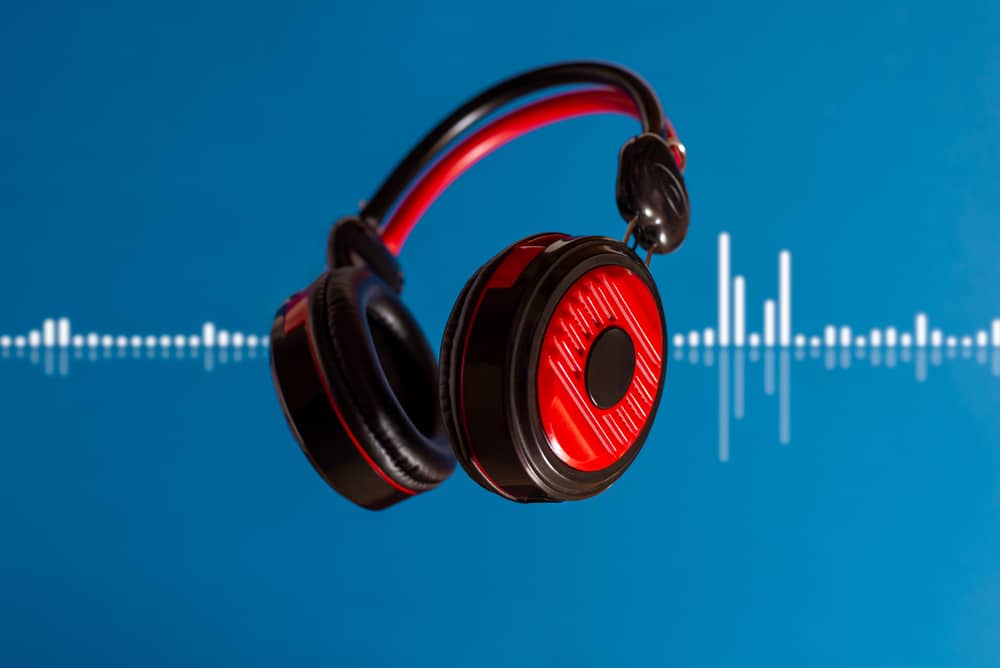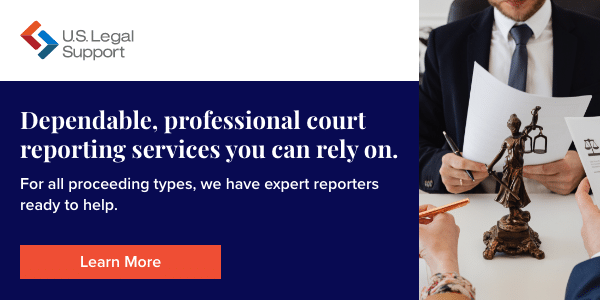Why Verbatim Transcription Is Essential for the Legal Industry

Have you ever compared the dialogue in a favorite book to the conversation around you? Or wished you could always have the perfect zinger like the fast-talking characters on TV?
The reality is, authentic speech isn’t as scrubbed as a script. Speech includes plenty of filler words, pauses, and imperfections not portrayed in a carefully thought-out screenplay or fiction novel. Verbatim transcription, on the other hand, captures every word and sound exactly as they occur, even a single filler word.
For legal purposes, verbatim transcription can be an essential tool to help understand courtroom events and legal cases, as it is one of the most accurate records of a testimony, trial, or proceeding.
What Is Verbatim Transcription?
There are many types of legal transcription. Transcribing is the act of capturing spoken words or sounds and converting them to text, and verbatim means capturing exactly the words spoken and sounds made. While it may seem like a fairly simple exercise, verbatim transcription has been a challenge since ancient civilizations recognized the need for a formal record of official proceedings.
The difficulty is related to the speed of speech compared to the methods of recording speech. Compare these average speeds in words per minute (WPM):
- Skilled typist on a standard QWERTY keyboard: 80–120 WPM
- English speaker, average: 180–250 WPM
- English speaker, fast: 200–350 WPM
Well before today’s keyboards were available, writing down speech by hand was even slower. Shorthand writing systems were invented as a solution that captured phrases and phonetic sounds quickly at pace with live speech.
Today, the process of verbatim transcription is often done using a stenograph machine with keys configured to represent shorthand rather than individual characters. A professional Stenographer can capture between 225 and 360 WPM.1
The second step of verbatim transcription by a Stenographer is to convert that shorthand back into standard text to generate an accurate written transcript for the record. This is done with a combination of software and hands-on review by the Stenographer or legal transcriptionists who can interpret shorthand.
What Is Verbatim Transcription Used For?
Transcription service isn’t just for courtrooms; it can be used any time the spoken word needs to be converted into a written format. This includes creating a record for non-legal purposes and captioning:
- For the purpose of communicating with Deaf and HOH participants
- At live events such as televised news or awards programs
- For public hearings or community meetings
Verbatim Transcription vs Non-Verbatim Transcription
Verbatim transcription captures every awkward “um,” stutter, and non-verbal sound.
Verbatim transcriptions are also known as:
- Strict verbatim transcription
- Full verbatim transcription
- Legal verbatim transcription
- True verbatim transcription
Non-verbatim transcription generates a written record intended to provide more readable text than a verbatim recording might. It includes the possibility of paraphrasing, rearranging, ignoring, or otherwise altering spoken words and sounds to better portray the message being communicated.
Non-verbatim transcriptions are also known as:
- Clean verbatim transcription
- Intelligent verbatim transcription
An organizer may opt for a non-verbatim transcript to modify this message:
“Well, I… I mean… um [cough] …h-h-he said [throat clearing], he said… um… yes.”
To this simplified version:
“Well, I mean, he said yes.”
The Importance of Verbatim Transcription in the Legal Industry
Transcripts are critical to legal casework and trials. Witnesses are deposed and questioned exhaustively, and the transcripts captured at depositions are used to uncover facts and opinions, plan trial strategies, and negotiate settlements.
Even if a testimony is video recorded, an official transcript must accompany it for trial and further legal use.2 A verbatim transcript is searchable as digital text and considered the conclusive source if a video or audio recording fails or a word or phrase can’t be easily understood.
Beyond the words, capturing sounds such as crying, laughter, and multiple false starts to an answer can help identify the emotional weight or perceptible veracity of a testimony or interrogation.
Something as minor as a change in verb tense or the replacement of a single letter could make or break legal decisions, allow a witness to be impeached, or provide a basis to appeal a verdict—making accuracy in transcribing absolutely paramount.
See related: Legal Transcriptionist vs. Court Reporter
Obtain Accurate Verbatim Transcription with U.S. Legal Support
An accurate transcript can make or break a case, particularly when complex testimony, perjury, or appeals are involved. Securing professional, experienced court reporters for your depositions and proceedings will help keep your cases progressing forward.
Since 1996, U.S. Legal Support has provided top-notch litigation support to attorneys, law firms, and corporations who need transcripts delivered with security and speed. We work with a network of 5,000+ professional court reporters across the three major methodologies: stenography, voice writing, and digital reporting.
And if you don’t require legal verbatim transcription services, we can unite you with experts in non-verbatim transcriptions who can provide clean transcripts for events or other communication purposes, along with translation services.
Whether your proceeding is in-person, remote, or hybrid, we can connect you with the right professional to fit your needs. Contact us today by phone, email, or website request form to learn more about our litigation support services.
Sources:
- Stanley Sakai. Stan’s Quick and Dirty: How Stenography Works. https://youtu.be/62l64Acfidc
- Cornell Law School. Rule 32. Using Depositions in Court Proceedings. https://www.law.cornell.edu/rules/frcp/rule_32

Editoral Policy
Content published on the U.S. Legal Support blog is reviewed by professionals in the legal and litigation support services field to help ensure accurate information. The information provided in this blog is for informational purposes only and should not be construed as legal advice for attorneys or clients.


